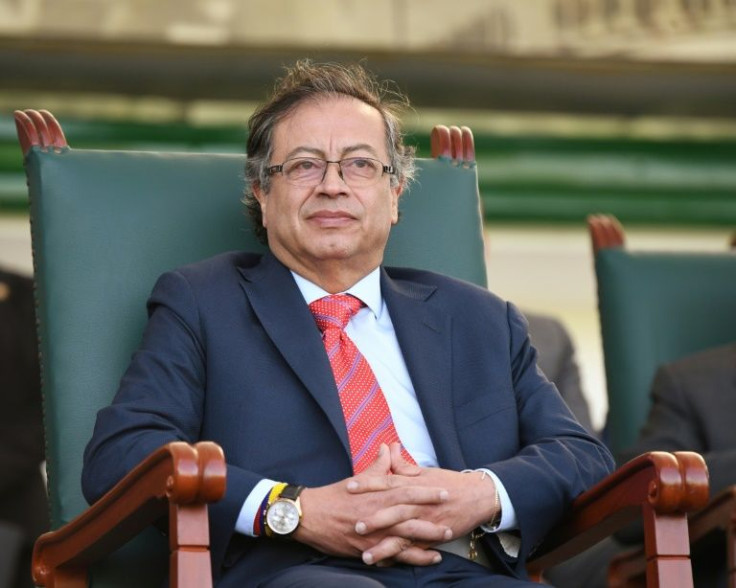
Colombian President Gustavo Petro suggested on Friday that a guerrilla commander sought to have him assassinated by snipers.
"I would ask alias 'Ivan Mordisco' if it's true that he has allied himself with the self-proclaimed 'New Drug Trafficking Board' with secret headquarters in Dubai, from where they commit crimes, to kill me with paid snipers," Petro said in a post published on X.
Ivan Mordisco is the commander of the Estado Mayor Central (EMC), a dissident group of the now-demobilized FARC and one of several operating in the country.
"I think that those who live in rural areas and his own illegally armed members should know that. The path is not that of red flags. It's time to dismantle unlawful businesses and make peace with the Colombian people," he added.
Le preguntaría a alias "Ivan Mordisco" si es cierto si se ha aliado con la autodenominada "Nueva Junta del Narcotrafico" con sede clandestina en Dubai, desde donde delinquen, para matarme con francotiradores pagos.
— Gustavo Petro (@petrogustavo) August 9, 2024
Creo que el campesinado y sus propias bases armadas ilegales…
An Univision report said Petro was tipped by the U.S. embassy about the plan, which was set to take place during an event to commemorate the country's independence on July 20. The president didn't give more information about the Dubai-based criminal group.
The revelation comes as Petro's "total peace" plan faces serious challenges. Another armed group, the National Liberation Army (ELN for its acronym in Spanish), resumed its operations this week after a ceasefire agreement ended without being extended.
Defense Minister Iván Velasquez confirmed the news, saying that "offensive operations are back on and that is the order of the commander of the military, also of the director of national police."
Parts of the ceasefire had already collapsed, as the ELN had resumed kidnappings, a feared practice that provides financing for the group. According to Reuters, the remaining aspects broke down "due to the group's radical positions, diffuse chain of command and dissent in its ranks."
The development could lead to further violence against civilians, already rising throughout the year, an analysis by InSight Crime shows.
Between January and May 2024, the United Nations Office for the Coordination of Humanitarian Affairs (OCHA) reported a 36% inter-annual increase in the number of people displaced. Additionally, there was a 171% rise in people experiencing confinement and a 13.8% increase in those affected by conflict. By late June, 53,600 people had been affected by confinement and 29,200 by mass displacement.
© 2025 Latin Times. All rights reserved. Do not reproduce without permission.





